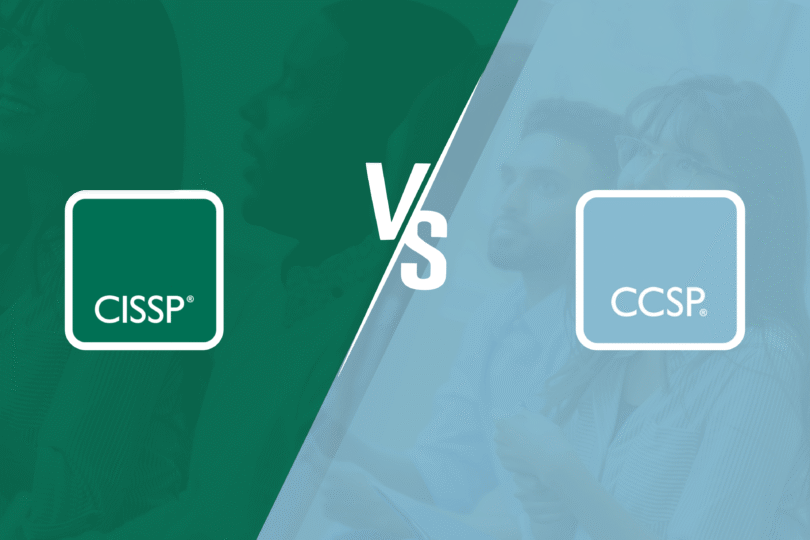Introduction – Why ISC² Credentials Define Cybersecurity Excellence
Cybersecurity is no longer optional, it’s mission-critical. Every organization, from fintech startups to global enterprises, faces constant digital threats that demand skilled defenders. And when it comes to proving cybersecurity mastery, no organization commands more respect than ISC² (International Information System Security Certification Consortium).
Since 1989, ISC² has set the global standard for professional security certifications. Its flagship credential, CISSP (Certified Information Systems Security Professional), remains the world’s most recognized cybersecurity qualification. But ISC² now offers a full ecosystem of certifications that address modern challenges like cloud security, governance, and risk.
In 2025, the CISSP, CCSP, and new emerging ISC² paths continue to empower professionals to lead, design, and defend complex information systems. Let’s explore how these ISC2 certification exams map to real roles, salaries, and future-ready career paths.
About ISC² – The Global Cybersecurity Authority
ISC² is a nonprofit membership organization with more than 600,000 certified professionals worldwide. Its mission: to promote security best practices and develop skilled professionals through certification and continuous education.
Every ISC² certification follows a Common Body of Knowledge (CBK) , a global framework covering technical, managerial, and ethical standards. Professionals holding ISC² credentials commit to a strict Code of Ethics, emphasizing trust, competence, and lifelong learning.
Why ISC² Certifications Matter in 2025
- Global Employer Trust – Governments, defense agencies, and Fortune 500 companies require ISC²-certified experts for critical positions.
- Proven Salary Premiums – Certified professionals earn 25-35 % more than their non-certified peers in the same roles.
- Holistic Skill Coverage – ISC² blends technical expertise with leadership and governance, making you a strategist, not just a technician.
- Compliance Alignment – Certifications align with NIST, ISO 27001, GDPR, and emerging zero-trust frameworks.
- Continuous Evolution – New domains (AI security, privacy, cloud governance) ensure relevance in the rapidly changing threat landscape.
The ISC² Certification Family (2025 Overview)
| Certification | Focus Area | Experience Level | Ideal For |
| SSCP (Systems Security Certified Practitioner) | Technical operations and network defense | Entry / Mid | Security Analysts, IT Admins |
| CISSP (Certified Information Systems Security Professional) | Leadership, architecture, governance | Senior / Expert | Security Managers, CISOs |
| CCSP (Certified Cloud Security Professional) | Cloud architecture and compliance | Mid / Senior | Cloud Architects, Security Engineers |
| CSSLP (Certified Secure Software Lifecycle Professional) | Secure coding and DevSecOps | Mid / Senior | Application Security Engineers |
| HCISPP (HealthCare Information Security & Privacy Practitioner) | Healthcare security and privacy | Niche | Compliance & Risk Officers |
| CGRC (Certified in Governance, Risk and Compliance) | Risk frameworks and audit control | Mid / Senior | GRC Specialists |
| ISC² Certified in Cybersecurity (CC) | Foundational cybersecurity knowledge | Beginner | Career Starters, Students |
Certified in Cybersecurity (CC) – The New Gateway Credential
Launched in 2023, this entry-level certification has exploded in popularity. It introduces candidates to cybersecurity basics and opens doors to junior SOC or IT security roles.
Core Skills:
- Cybersecurity concepts and threat types
- Network fundamentals and monitoring
- Incident response principles
- Security policies and frameworks
Exam Details: 100 questions | 2 hours | Passing score = 700 / 1000
Cost: $150
Salary Range: $60 000 – $80 000
Why It Matters:
CC helps bridge the global skills gap by verifying real foundational knowledge , perfect for new graduates and career changers.
SSCP – Systems Security Certified Practitioner
The SSCP is designed for IT professionals managing operational security and hands-on defenses.
Focus Domains:
- Access control and identity management
- Network security and cryptography
- Incident response and recovery
- Risk identification and mitigation
Roles: SOC Analyst, Security Admin, Systems Engineer
Salary: $80 000 – $110 000
Why Pursue It:
It proves you can implement policies set by higher-level architects and managers , a solid steppingstone toward CISSP.
CISSP – The Gold Standard of Cybersecurity Leadership
If you want to be recognized as a senior security expert, CISSP is the credential that opens those doors.
About the Exam
- Code: CISSP
- Length: 100-150 adaptive questions
- Duration: 3 hours
- Cost: $749
- Experience Required: 5 years across at least 2 CBK domains
Eight CBK Domains
- Security & Risk Management
- Asset Security
- Security Architecture & Engineering
- Communications & Network Security
- Identity & Access Management
- Security Assessment & Testing
- Security Operations
- Software Development Security
Why It Matters
- Required for CISO, Security Manager, and Architect roles worldwide
- Approved under U.S. DoD 8570/8140 frameworks
- Recognized by governments, banks, and defense agencies
Average Global Salary: $130 000 – $190 000
Key Benefits
- Comprehensive coverage from governance to cryptography
- Establishes credibility with executives and auditors
- Eligible for ISC² membership and continuous CPE credits
CCSP – Certified Cloud Security Professional
Cloud adoption has transformed cybersecurity. CCSP proves you can design and secure cloud environments across AWS, Azure, and Google Cloud.
Exam: 125 questions | 4 hours | Cost $599
Experience: 5 years IT + 3 years security (1 in CCSP domain)
Six Domains of CCSP
- Cloud Concepts, Architecture & Design
- Cloud Data Security
- Cloud Platform & Infrastructure Security
- Cloud Application Security
- Cloud Security Operations
- Legal, Risk & Compliance
Key Skills
- Data lifecycle management in cloud
- Encryption, key management, tokenization
- Identity federation (SAML, OIDC)
- Compliance across multiple jurisdictions
Roles: Cloud Security Architect, DevSecOps Engineer
Salary: $120 000 – $165 000
CSSLP – Certified Secure Software Lifecycle Professional
With software supply-chain threats rising, CSSLP is gaining traction fast. It validates secure design and coding across the SDLC.
Focus: Secure requirements, design, implementation, testing, and maintenance
Ideal For: Developers, AppSec engineers, DevOps teams integrating security automation
Salary: $110 000 – $150 000
CGRC – Governance, Risk and Compliance
Formerly CAP, CGRC focuses on the intersection of technology, risk, and regulation.
Skills Covered
- Risk assessment methodologies
- Control implementation and authorization
- NIST RMF & ISO 31000 alignment
- Audit management
Roles: Risk Manager, Auditor, Compliance Director
Salary: $100 000 – $140 000
HCISPP – Healthcare Information Security & Privacy Practitioner
Specialized certification for healthcare professionals managing HIPAA and medical-data security.
Domains: Healthcare environment, privacy, risk, regulatory frameworks
Roles: Compliance Analyst, Data Privacy Officer
Salary: $95 000 – $130 000
Emerging ISC² Focus Areas in 2025
- AI and Machine-Learning Security: New micro-credentials on responsible AI design.
- Zero-Trust Architecture: Framework alignment with NIST SP 800-207.
- Quantum-Resilient Cryptography: Research collaborations for future exam domains.
- Privacy & Data Sovereignty: Expansion of regional data-law modules.
ISC² Career Roadmap 2025
| Career Stage | Recommended Certifications | Typical Roles | Average Salary (USD) |
| Beginner (0-2 yrs) | CC → SSCP | Security Analyst, SOC Tech | 65 000 – 90 000 |
| Mid-Level (2-5 yrs) | SSCP → CCSP / CGRC | Security Engineer, Risk Analyst | 95 000 – 130 000 |
| Advanced (5-8 yrs) | CISSP + CCSP | Security Manager, Architect | 130 000 – 170 000 |
| Leadership (8+ yrs) | CISSP-ISSAP / ISSEP / ISSMP | CISO, Director of Security | 160 000 – 200 000+ |
Skills Validated Across ISC² Certifications
- Cybersecurity architecture and design
- Identity & access management
- Cloud security and shared responsibility
- Governance and risk management
- Incident detection & response
- Legal compliance and audit frameworks
- DevSecOps and secure SDLC
- Business continuity and disaster recovery
How to Prepare for ISC² Exams Effectively
- Study the Official CBK – Use ISC²-approved study guides for your chosen exam.
- Take Official Online Courses – ISC² and partners like Coursera and Pluralsight offer updated training aligned with 2025 domains.
- Join Local Chapters – Networking with certified peers helps clarify complex topics.
- Practice Tests Weekly – Simulate timing and question variety.
- Review Weak Domains – ISC² exams are domain-weighted; focus where you score low.
- Accumulate Real Experience – Hands-on security projects are often the best preparation.
- Plan for CPE Maintenance – All certs require continuing professional education credits for renewal.
Common Mistakes to Avoid
- Attempting CISSP or CCSP without the required experience
- Ignoring governance or risk topics in technical prep
- Memorizing acronyms instead of understanding frameworks
- Failing to track CPE credits post-certification
- Overlooking soft skills, communication is essential in leadership roles
Average Salaries for ISC² Professionals (2025 Global Data)
| Certification | Average Salary (USD) |
| Certified in Cybersecurity (CC) | 70 000 |
| SSCP | 95 000 |
| CCSP | 140 000 |
| CISSP | 160 000 |
| CSSLP | 135 000 |
| CGRC | 125 000 |
| HCISPP | 120 000 |
| CISSP-ISSAP / ISSEP / ISSMP | 180 000 + |
FAQs
Q1: Which ISC² certification should I start with in 2025?
A: Begin with Certified in Cybersecurity (CC) if you’re new to the field. It establishes foundational knowledge before advancing to SSCP or CISSP.
Q2: What is the difference between CISSP and CCSP?
A: CISSP covers overall security management and architecture; CCSP specializes in securing cloud platforms and services. Many professionals earn both for comprehensive coverage.
Q3: How long does it take to prepare for CISSP?
A: Typically 5-7 months of disciplined study and practice for candidates with prior experience.
Q4: Are ISC² certifications globally recognized?
A: Yes. They’re accepted across industries worldwide and often mandatory for government and defense roles.
Q5: Do ISC² certifications expire?
A: They remain valid for three years with ongoing CPE credit requirements and annual maintenance fees.
Final Thoughts
Cybersecurity in 2025 demands professionals who can combine technical mastery with governance insight, and ISC² certifications deliver exactly that.
Whether you’re defending infrastructure as an SSCP, leading enterprise policy as a CISSP, or securing cloud systems through CCSP, these credentials demonstrate not only skill but also integrity and leadership.
Stay committed to lifelong learning, participate in ISC²’s professional community, and keep your knowledge evolving with new threat landscapes.
In a world where trust and resilience define success, ISC²-certified professionals are shaping the secure future of global technology.








